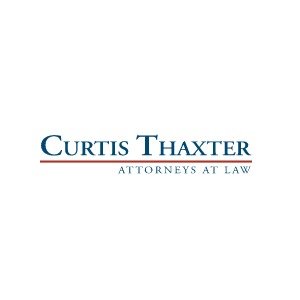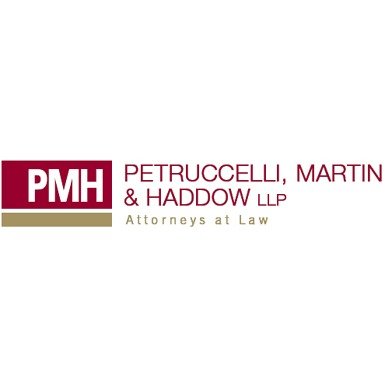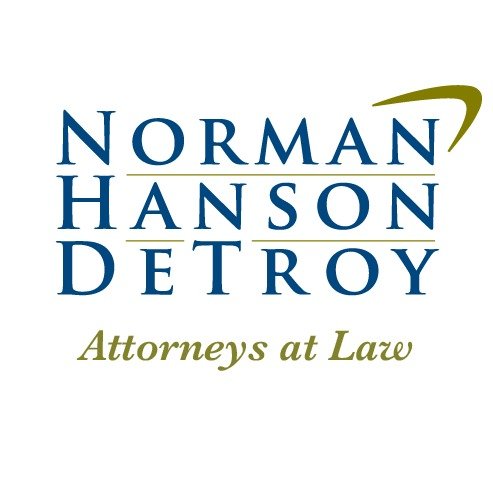Best Banking & Finance Lawyers in Maine
Share your needs with us, get contacted by law firms.
Free. Takes 2 min.
Or refine your search by selecting a city:
List of the best lawyers in Maine, United States
United States Banking & Finance Legal Articles
Browse our 1 legal article about Banking & Finance in United States written by expert lawyers.
- United States Student Loan Repayment 2026: Post-SAVE Options
- By 2026, most federal borrowers will be in long-term repayment with interest fully accruing again, and several "temporary" relief rules are set to expire. If legal or political attacks weaken SAVE, the original Income-Based Repayment (IBR) plan is likely the most durable, legally grounded income-driven repayment (IDR) option still available.... Read more →
About Banking & Finance Law in Maine, United States
Banking & Finance law in Maine is a broad area that covers all regulations, transactions, and legal relationships within the financial industry in the state. This includes issues related to banks, credit unions, lending institutions, borrowers, consumers, secured transactions, regulatory compliance, and investments. The legal landscape in Maine is influenced both by federal law and state-specific regulations, ensuring that all financial dealings are conducted fairly, transparently, and within the boundaries of the law. Whether you are a consumer, business owner, investor, or lender, understanding how banking and finance law applies to your activities in Maine is crucial to protecting your interests and ensuring compliance.
Why You May Need a Lawyer
Banking & Finance law can be complex and highly regulated. You may need a lawyer for a variety of reasons, including:
- Reviewing or negotiating loan agreements, mortgages, or business financing contracts.
- Addressing disputes between borrowers and lenders, such as foreclosure or collection actions.
- Ensuring compliance with state and federal regulations regarding lending, investments, or operating a financial institution.
- Assisting with consumer protection issues, such as unfair banking practices or unauthorized charges.
- Advising on the legal aspects of starting a new bank or credit union or merging financial institutions.
- Handling bankruptcy proceedings or debt restructuring.
- Navigating securities regulations for investments.
- Dealing with regulatory investigations or enforcement actions by state or federal agencies.
A knowledgeable banking and finance lawyer can help protect your rights, reduce risk, and structure transactions to avoid legal pitfalls.
Local Laws Overview
Maine banking and finance laws are shaped by both state and federal statutes. The Maine Bureau of Financial Institutions regulates state-chartered banks and credit unions. The Maine Consumer Credit Code governs consumer lending, setting out requirements for disclosures, interest rates, and collection practices. State-specific foreclosure procedures, usury laws, and garnishment rules play an important role in lending activities. Additionally, Maine enforces federal regulations like the Truth in Lending Act, Fair Debt Collection Practices Act, and Bank Secrecy Act. Financial institutions and their clients must also be aware of laws designed to prevent fraud, money laundering, and discrimination in lending. These combined regulations create a structured environment that aims to maintain fair and responsible banking and lending within Maine.
Frequently Asked Questions
What is the Maine Bureau of Financial Institutions?
The Maine Bureau of Financial Institutions is the state agency responsible for licensing, examining, and regulating state-chartered banks and credit unions in Maine. It works to ensure that these institutions operate safely and fairly.
Are there laws that protect consumers from predatory lending in Maine?
Yes. The Maine Consumer Credit Code includes provisions that set limits on interest rates and fees and require lenders to provide clear disclosures. These laws help protect consumers from unfair or deceptive lending practices.
What should I do if I am facing a foreclosure on my home in Maine?
If you are at risk of foreclosure, contact your lender to discuss workout options as soon as possible. You should also consult a lawyer who understands Maine's foreclosure laws and can help you understand your rights and options.
How are interest rates regulated in Maine?
Maine has usury laws that limit the maximum amount of interest that can be charged on certain loans. The Maine Consumer Credit Code sets these limits, but there are exceptions for some types of loans or institutions.
Can a bank garnish my wages in Maine?
Yes, but only after obtaining a court judgment against you. There are limits to how much can be taken from each paycheck, as established by both federal and Maine law to protect consumers.
What rights do I have if I find unauthorized charges on my bank account?
Under federal law and Maine statute, you have the right to dispute unauthorized transactions. Report them to your bank promptly, as your liability may increase if you delay. Your bank must investigate and usually must reimburse unauthorized losses if reported promptly.
How can I make sure a lender or financial advisor is legitimate?
Check licenses and registrations with the Maine Bureau of Financial Institutions and the Maine Office of Securities. You can also research complaints or disciplinary actions through these agencies.
Do I need legal advice to get a business loan in Maine?
Legal advice can be very helpful, especially with complex loans, personal guarantees, or significant collateral. A lawyer can review the agreement and help negotiate terms that protect your interests.
What are my rights regarding debt collection in Maine?
Maine law and the federal Fair Debt Collection Practices Act protect you from abusive or deceptive practices by debt collectors. You have rights regarding communication, verification of the debt, and dispute procedures.
Who regulates securities and investments in Maine?
The Maine Office of Securities regulates securities offerings and the conduct of investment professionals within the state. Federal securities laws also apply.
Additional Resources
Here are some valuable resources and organizations involved in banking and finance in Maine:
- Maine Bureau of Financial Institutions - For information about banks and credit unions, regulatory oversight, and consumer complaints.
- Maine Office of Consumer Credit Regulation - To learn about consumer lending laws and file complaints regarding consumer financing.
- Maine Attorney General’s Office - For consumer protection information and assistance with fraud or deceptive practices.
- Maine Office of Securities - For information regarding investments, securities regulation, and licensed investment professionals.
- Consumer Financial Protection Bureau (CFPB) - For federal consumer financial law information and complaints.
- Local legal aid organizations - For legal assistance or referrals for individuals who qualify based on income.
Next Steps
If you need legal assistance in the field of Banking & Finance in Maine, start by gathering all relevant documentation and writing down a summary of your issue or question. Identify whether your issue is with a bank, lender, collection agency, or financial advisor. Then:
- Contact a qualified Maine attorney specializing in banking and finance law for an initial consultation.
- Prepare any questions you have in advance and bring all agreements, correspondence, or notices related to your matter.
- If you are unsure where to find a lawyer, consult the Maine State Bar Association’s referral service or local legal aid organizations.
- For general information or consumer complaints, reach out to the relevant Maine state agency listed above.
With the right legal guidance, you can better understand your rights, obligations, and available options and make informed decisions regarding your banking and financial concerns in Maine.
Lawzana helps you find the best lawyers and law firms in Maine through a curated and pre-screened list of qualified legal professionals. Our platform offers rankings and detailed profiles of attorneys and law firms, allowing you to compare based on practice areas, including Banking & Finance, experience, and client feedback.
Each profile includes a description of the firm's areas of practice, client reviews, team members and partners, year of establishment, spoken languages, office locations, contact information, social media presence, and any published articles or resources. Most firms on our platform speak English and are experienced in both local and international legal matters.
Get a quote from top-rated law firms in Maine, United States — quickly, securely, and without unnecessary hassle.
Disclaimer:
The information provided on this page is for general informational purposes only and does not constitute legal advice. While we strive to ensure the accuracy and relevance of the content, legal information may change over time, and interpretations of the law can vary. You should always consult with a qualified legal professional for advice specific to your situation.
We disclaim all liability for actions taken or not taken based on the content of this page. If you believe any information is incorrect or outdated, please contact us, and we will review and update it where appropriate.
Browse banking & finance law firms by service in Maine, United States
Maine, United States Attorneys in related practice areas.
Browse banking & finance law firms by city in Maine
Refine your search by selecting a city.












